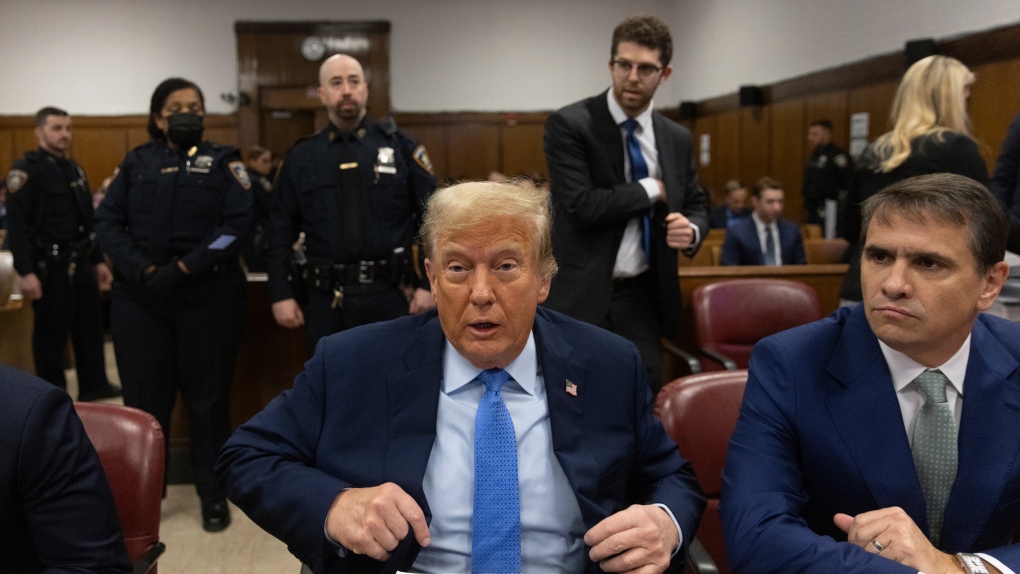
Trump's lawyers grill ex-tabloid publisher as 1st week of hush money trial testimony nears a close
CTV
After prosecutors' lead witness painted a tawdry portrait of “catch-and-kill” tabloid schemes, defence lawyers in Donald Trump's criminal trial on Friday sought to dig into an account of the former publisher of the National Enquirer and his efforts to protect Trump from negative stories during the 2016 election.
After prosecutors' lead witness painted a tawdry portrait of “catch-and-kill” tabloid schemes, defence lawyers in Donald Trump's criminal trial on Friday sought to dig into an account of the former publisher of the National Enquirer and his efforts to protect Trump from negative stories during the 2016 election.
David Pecker returned to the witness stand for the fourth day as defence attorneys try to poke holes in his testimony after he described helping bury embarrassing stories that Trump feared could hurt his campaign.
It will cap a consequential week in the criminal cases the former president is facing as he vies to reclaim the White House in November.
At the same time jurors listened to testimony in Manhattan, the Supreme Court on Thursday signalled it was likely to reject Trump's sweeping claims that he is immune from prosecution in his 2020 election interference case in Washington. But the conservative-majority high court seemed inclined to limit when former presidents could be prosecuted - a ruling that could benefit Trump by delaying that trial, potentially until after the November election.
In New York - the first of Trump's four criminal cases to go to trial - the presumptive Republican presidential nominee faces 34 felony counts of falsifying business records in connection with hush money payments meant to stifle negative stories from surfacing in the final days of the 2016 campaign.
Trump denies any wrongdoing. Before entering the courtroom Friday, he told reporters he believes Thursday's proceedings went “very well” for the defence, adding that “the case should be over.”
Prosecutors allege that Trump sought to illegally influence the 2016 race through a tabloid industry practice that involves catching a potentially damaging story by buying the rights to it and then killing it through agreements that prevent the paid person from telling the story to anyone else.
